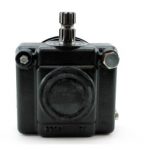Any lawn owner who owns dogs is familiar with the harmful effects of dog urine on the lawn. Dog urine causes lawn burn, resulting in patches of dried-out grass. This post covers the dangers of dog urine (dispelling some urban myths in the process) and offers suggestions on how to best mitigate the harmful effects your dog can have on your lawn.
Why is Dog Urine Bad for Lawns?
The reason dog urine is harmful is because of its high concentration of nitrogen. Believe it or not, dog urine is actually helpful for your lawn when it’s released in very small doses. Problems arise when large amounts are released onto your lawn. Unfortunately this is what generally happens when your dog relieves himself. Because lawn burn occurs from a high nitrogen level, one might think that the best practice for eliminating lawn burn would be to attempt to alter the pH concentration of your dog’s urine. However, this approach is nothing more than an urban myth and can produce extremely harmful effects to your dog’s health. For this reason, you should absolutely avoid trying to acidify your dog’s urine pH level. Mainly because it is impossible to do safely, if at all.
What Can You Do to Counter Dog Urine?
Because there is no way of altering the pH concentration of dog urine, the best you can do is mitigate its harmful consequences. First of all, if your dog has just urinated, isolate the exact location and hose down the spot. Be very liberal in your soaking, as you really want to make sure that you get it well-hosed. The water will remove the nitrogen salts from the grass and go a long way toward preventing it from drying out.
Train Your Dog.
Another useful approach is to train your dog to urinate in an isolated region of your lawn, preferably one in which there is no grass. This obviously takes a bit of time but shouldn’t be that hard, after all, you trained your dog not to urinate in your house. Be sure to clearly mark the spot where the dog is free to go to the bathroom, and then once the dog catches on you won’t have to even worry about repairing the grass.
Re-seed
If you do allow your dog to urinate on your lawn, be sure to re-seed the entire lawn each year. Aerate the lawn (you may have to hire a professional to do this) and make sure that your grass grows anew each year. Also, be mindful that certain grass types, such as Bermuda and Kentucky Bluegrass, are most susceptible to lawn burn from dogs.
Dogs may be a man’s best friend, but they are no friend to your lawn. Still, by following the instructions given in this post, you can combat the negative effects of dog urine on your lawn.
(Note: This article offers more info on dog urine as it relates to lawn care.)







